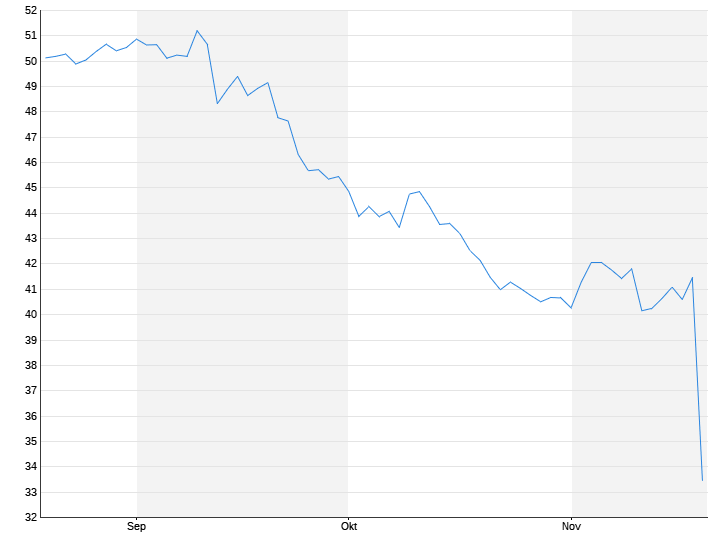Should reduce risk of stroke
Bayer cancels study on hopefuls
November 20, 2023, 7:39 a.m
Listen to article
This audio version was artificially generated. More info | Send feedback
Taking blood thinners is said to reduce the risk of stroke. Bayer has high hopes for the development of the drug Asundexian. The drug promises billions in sales, but fails in an important test phase.
Bayer is canceling a study with its biggest drug hope, Asundexian. A phase III study examining Asundexian in comparison to Apixaban in patients with atrial fibrillation and at risk of stroke will be terminated early, the pharmaceutical company announced.

The decision is based on the recommendation of the independent Data Monitoring Committee (IDMC) as part of ongoing study monitoring. The effectiveness of Asundexian was shown to be inferior compared to the control arm of the study. Bayer will continue to analyze the data to better understand the result and publish the data. Bayer only expanded the study program using this tool at the beginning of November.
For the development, Bayer even used artificial intelligence to recruit patients. According to its own information, the company was able to reduce the number of patients for the comprehensive phase 3 study by several thousand.
According to previous information, the group had expected Asundexian, which should be ready for the market in 2026, to have peak sales potential of more than five billion euros, more than any of its other drugs. According to initial data, the preparation led to significantly lower bleeding rates than the anticoagulant Eliquis from competitors Bristol-Myers Squibb and Pfizer and was intended to replace the previous bestseller Xarelto at the German pharmaceutical giant.
Anticoagulants such as Xarelto are used in medicine to treat cardiac arrhythmias such as atrial fibrillation. These could ultimately end in a stroke, but the drugs administered such as Xarelto prevent circulatory disorders. Anticoagulants are not risk-free because they increase the risk of bleeding.
